
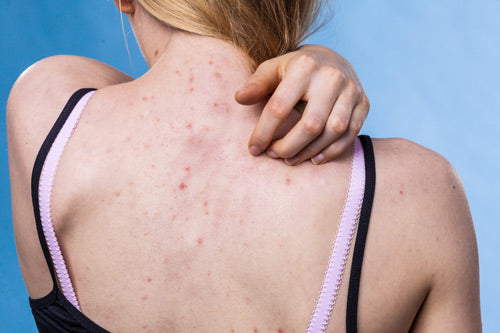
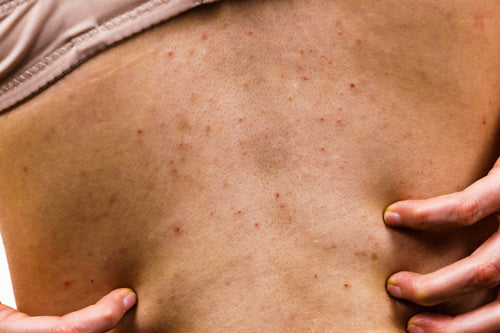
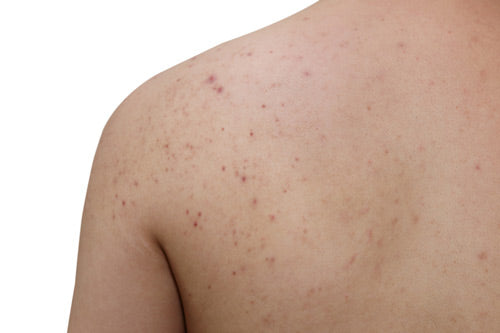
Body acne is breakouts, which present on the back, chest, butt, and arms.
• Whiteheads: no inflammation and pore is sealed with skin (closed comedones)
• Blackheads: no inflammation and pore is open
• Papules: small amounts of inflammation
• Pustules: more inflammation and pus in the pore
• Nodules/cysts: deep inflammation and infection, often painful
According to Dr. Gross, the impurities often found in tap water can cause chemical reactions with the skin's natural oils, changing the
consistency of the oil from a liquid to a wax, which in turn clogs the pores and can lead to acne.
Also, the impurities found in tap water can act as free radicals that bond with healthy skin cells impairing cells' ability to repair.
This in turn leads to the breakdown of collagen and leads to the formation of fine lines and wrinkles.
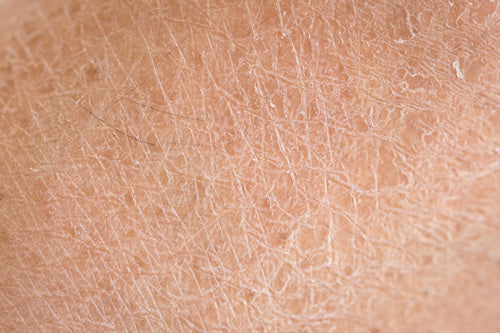

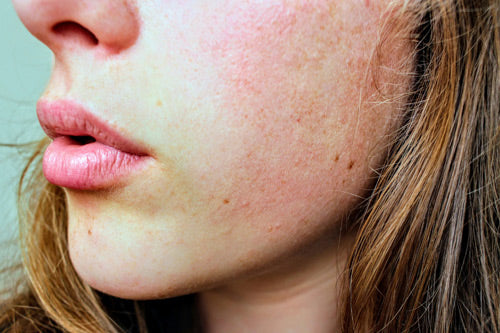
Dry skin occurs when your skin loses moisture and hydration.
This causes rough, flaky or scaly patches of skin.
Chlorinated water and contaminantsin tap water can deplete the skin of its natural oilsand hydration which in turn can exacerbate skin conditions causing Dehydrated, Itchy, scaly skin and cracked skin.
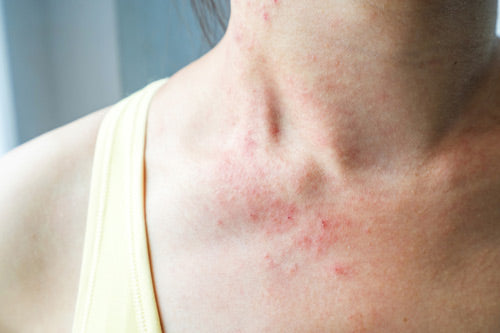
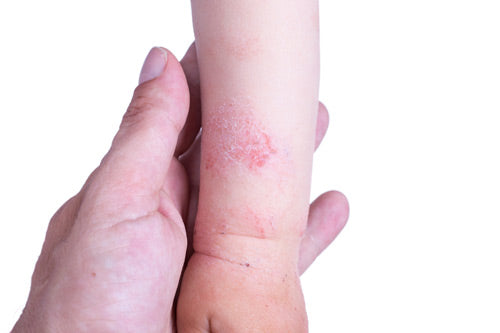
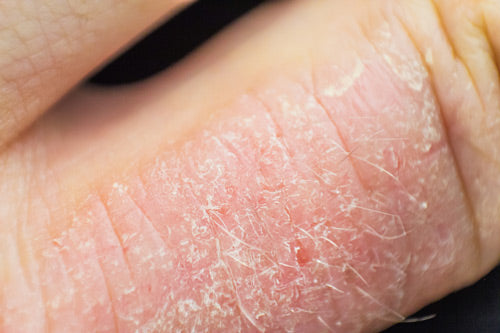
Eczema is a common skin condition that affects both children and adults.
Often referred to as atopic eczema, atopic dermatitis and allergic eczema depending on presentation and cause.
It affects the skin, causing redness, dryness, itching and sometimes infections.
Hard water damages our protective skin barrier and can potentially contribute to the development of eczema.
Studies have shown
1. Hard water ultimately made eczema worse by affecting hydration and PH of the skin
2. They discovered it created an irritable skin barrier that could cause eczema in healthy skin.
3. The patients studied with the FLG protein were more prone to developing eczema, regardless of their existing eczema condition.
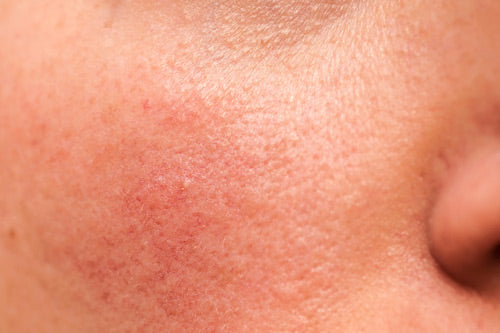
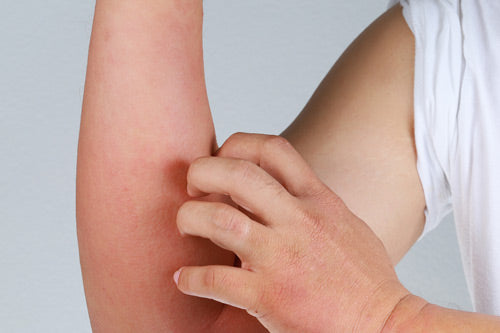
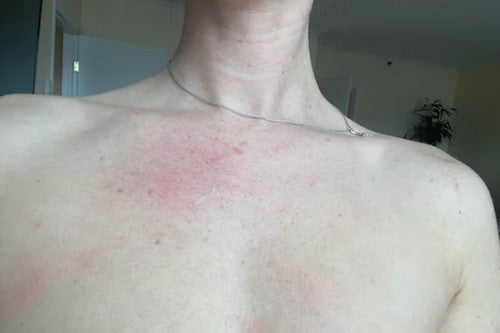
Show rashes are a skin rash that develops in the shower or after causing red and blotchy skin.
With so many different chemicals and disinfectants added to our water,these can remove the natural oil from the skin thereby making it dry, rough and itchy. Your skin's pores are also dried up by hard water, further aggravating the problem.
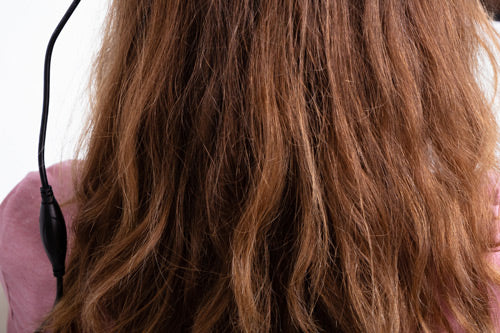
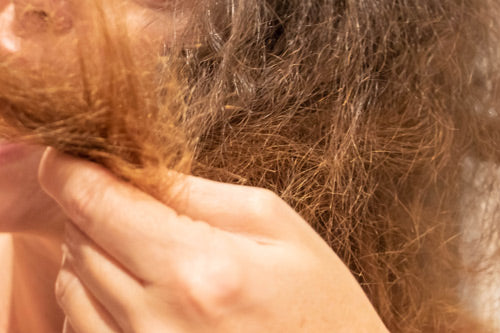
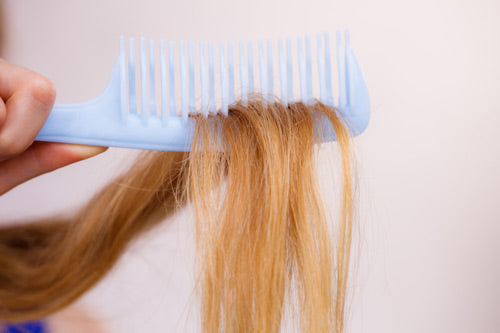
It is important to note that Dandruff and Seborrheic Dermatitis of the scalp is different to just dry scalp.
Hard water can exacerbate all three of these concerns so ensuring you are removing chemicals from your shower water helps balance PH and minimise symptoms.
A healthy scalp and pores lead to healthy, strong hair.
Dandruff shows up as small pieces of dry skin flaking off
your scalp, and it may be itchy.
As a result of chemicals and contaminants drying out the scalp and hair, their natural oils are removed, resulting in dry, dull, brittle textures and split ends.
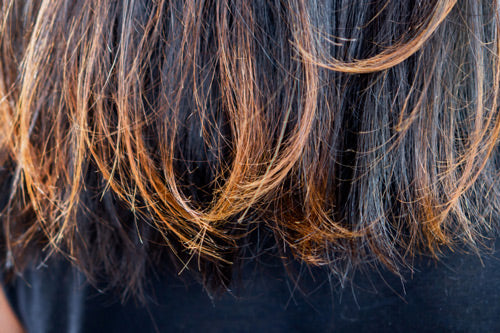
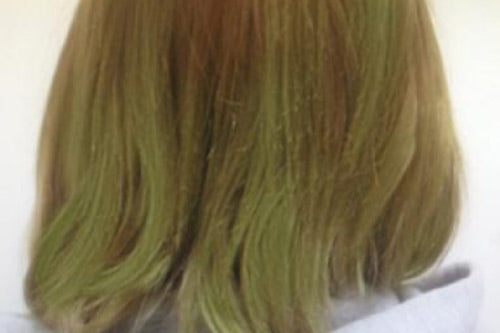
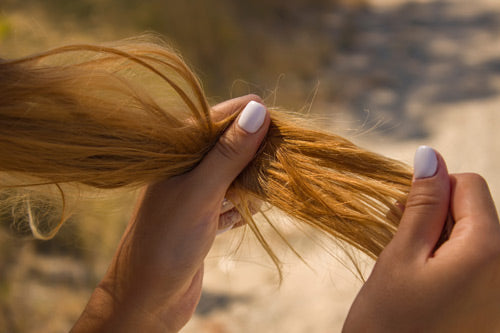
Discoloured hair is when starts throwing colours of Brass, yellow and greens. As any blonde would know chlorine is the main culprit!
Tap water is notorious for interfering with hair colour, causing it to become dull, faded, and in some cases, even discoloured.
If you want to keep your hair colour for longer, using a Wellness pod is a must!
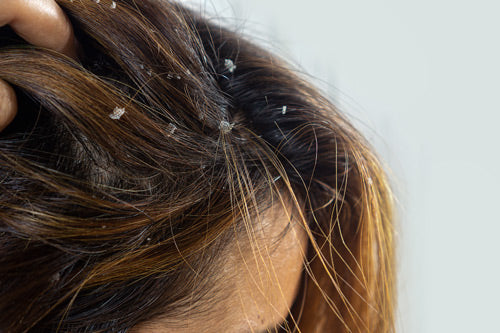
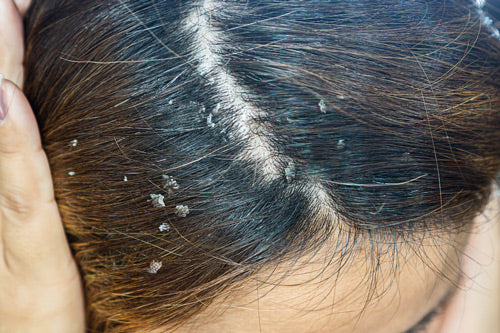
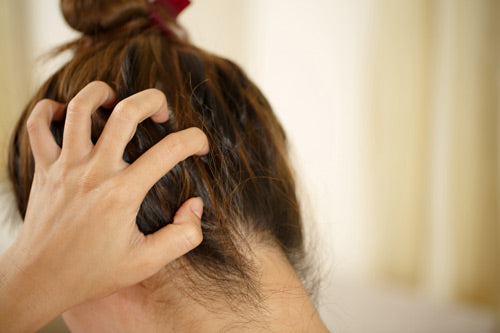
Washing your hair frequently with tap water can leave your scalp feeling itchy due to changing the pH balance of your skin. This impairs the skin's protective barrier which can potentially lead to increased susceptibility to infection and further irritation.
Tap water can also dry out all the
oils on your scalp making it flaky and dry.
Tap water can contain chlorine, heavy metals, and other harsh chemicals that strip the scalp’s natural oils, often leading to dryness, irritation, and itchiness.
For many, this is the hidden cause behind an itchy scalp — especially in areas with hard or highly treated water.
The Wellness Pod shower filter helps reduce these irritants, creating a gentler environment for both your scalp and your hair.